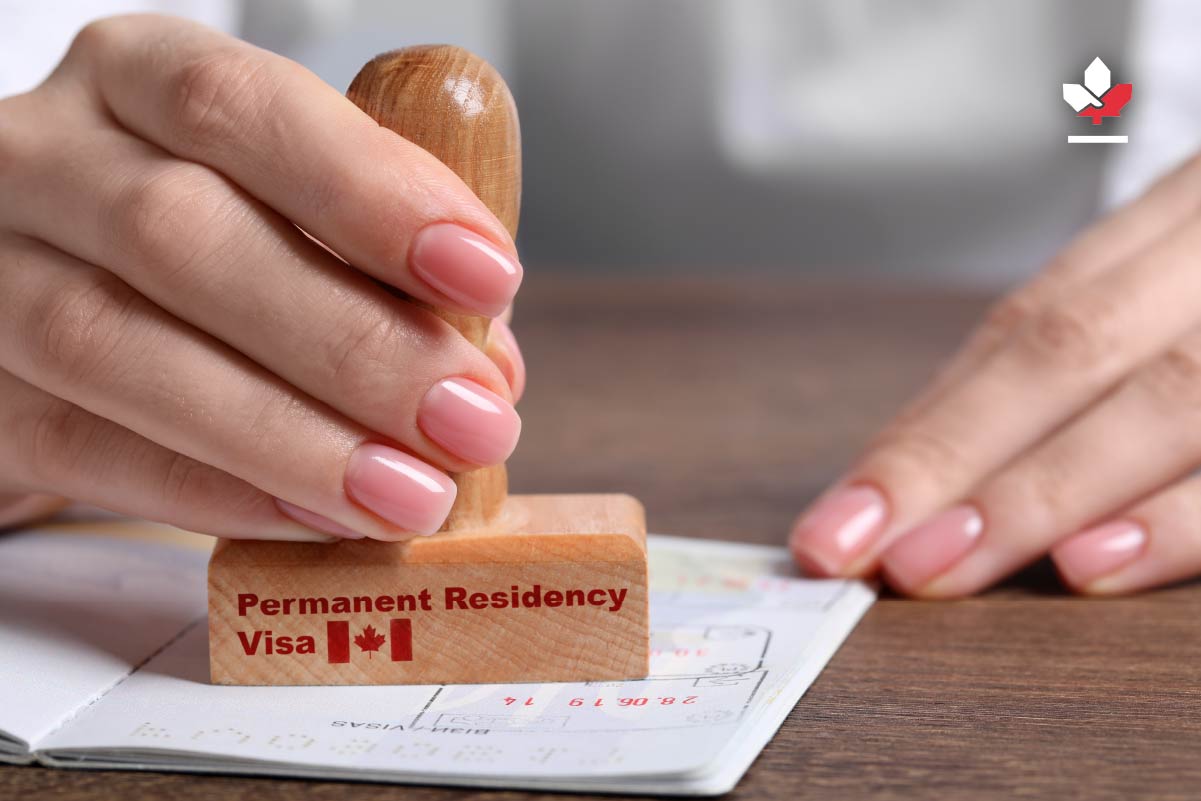How to Immigrate to Canada
July 10, 2024
|
Canada, with its stunning landscapes, multicultural cities, and strong social safety net, is a dream destination for many. If you want a fresh start in a welcoming and progressive country, immigrating could be the perfect choice. But where do you even begin? This comprehensive guide will walk you through the essential steps you must take to immigrate to Canada, from exploring your eligibility to navigating the application process.
Understanding the Pathways to Canadian Permanent Residency

Canada, recognizing the value of newcomers, offers a diverse range of immigration programs catering to various backgrounds and skill sets. Here is a comprehensive breakdown of the most popular pathways to securing Canadian Permanent Residency.
Express Entry
As the name suggests, Express Entry, a point-based system, is the most streamlined and popular route for skilled workers seeking Canadian Permanent Residency. It acts as a pool that manages applications for three distinct Federal Skilled Worker programs: the Federal Skilled Worker Program (FSWP), Federal Skilled Trades Program (FSTP), and Canadian Experience Class (CEC).
Federal Skilled Worker Program (FSWP)
This program is ideal for skilled workers with experience in occupations listed under Canada's National Occupation Classification (NOC). The NOC is a standardized system that categorizes all jobs in Canada. To qualify under FSWP, your work experience must be directly related to a NOC occupation classified under TEER level 0, 1, 2, or 3.
Federal Skilled Trades program (FSTP)
This program caters to skilled workers in specific trade professions listed on the NOC. If you are a plumber, electrician, welder, or another skilled tradesperson, this program might be your best route to Canadian PR. The FSTP requires proof of your trade certification and relevant work experience to qualify. Canada recognizes various foreign trade credentials, but you may need additional assessments to ensure they meet Canadian standards.
Canadian Experience Class (CEC)
This program is designed specifically for skilled workers who have already acquired skilled work experience in Canada, often under temporary work permits. This stream leverages the existing experience of temporary workers and aims to transition them to permanent residency. To qualify under CEC, you need to demonstrate at least one year of skilled work experience in Canada within the past three years in an occupation classified under NOC TEER level 0, 1, 2, or 3.
Each individual profile within the Express Entry pool is ranked based on a points system called the Comprehensive Ranking System (CRS). Your CRS score is determined by factors such as:
- Work experience: The length and relevance of your work experience in your NOC occupation will significantly impact your points.
- Education: Points are awarded for your educational qualifications, such as degrees, diplomas, and trade certifications. Educational Credential Assessments (ECAs) may be required to verify the legitimacy of your foreign education.
- Language skills: Proficiency in English or French is essential. Higher scores on approved language tests like IELTS or CELPIP translate to more points.
- Age: Generally, points are awarded for being between 18 and 35 years old.
Higher scores increase your chances of receiving an Invitation to Apply (ITA) for Canadian permanent residency. The Canadian government conducts regular Express Entry draws, inviting candidates with CRS scores above a specific cut-off point to formally apply for PR.
The Provincial Nominee Program (PNP)
The Provincial Nominee Programs offer a compelling pathway to Canadian Permanent Residency by catering to the specific labor market needs of each Canadian province and territory. Unlike Express Entry, a federal program, PNP programs are administered by individual provinces and territories, allowing them to tailor their selection criteria to address their unique economic priorities.
PNP programs can be a more targeted approach to immigration compared to Express Entry, with a higher chance of success if your skills align with a specific province's needs. Common target demographics for PNP programs can be seen below.
Skilled Trades
Canada needs more skilled tradespeople. PNP programs often prioritize plumbers, electricians, welders, mechanics, carpenters, and other skilled trades. If you possess qualifications and experience in a high-demand trade, a PNP could be a fast track to your Canadian dream.
Healthcare Professionals
The demand for qualified healthcare professionals across Canada is ever-increasing. PNP programs frequently target doctors, nurses, personal support workers, and other medical professionals. Many provinces offer expedited processing and settlement support for healthcare professionals willing to work in specific regions.
Entrepreneurs
Canada actively seeks entrepreneurs with innovative business ideas and the potential to create jobs. PNP programs often have streams specifically designed for entrepreneurs who can establish businesses in the province and contribute to the local economy. Some provinces might require minimum investment amounts or have specific industry focuses.
International Graduates
Recent graduates from Canadian universities and colleges hold a distinct advantage when applying through PNP programs. Many provinces offer PNP streams that prioritize graduates with in-demand skills and job offers from employers within the province. This program allows international graduates to leverage their Canadian education and gain valuable work experience while transitioning to Canadian permanent residency.
The Atlantic Immigration Program (AIP)
The Atlantic Immigration Program offers a streamlined pathway to permanent residency in Canada for skilled workers and international graduates seeking exciting opportunities in the beautiful provinces of Atlantic Canada:
These provinces boast stunning natural landscapes, vibrant communities, and a strong sense of hospitality. The AIP recognizes the unique economic needs of Atlantic Canada and aims to attract skilled individuals who can contribute to the region's growth and prosperity.
Unlike Express Entry, the AIP is employer-driven. To qualify, you will need a valid job offer from a designated employer in Atlantic Canada. The AIP streamlines the process for employers to hire skilled foreign workers by eliminating the need for a Labour Market Impact Assessment (LMIA) in most cases.
The AIP targets skilled workers with experience in occupations listed on Canada's National Occupation Classification TEER levels 0, 1, 2, or 3. Recent international graduates from Canadian educational institutions are also strong candidates, particularly those with job offers in Atlantic Canada.
This program boasts a more streamlined application process compared to some other economic immigration programs. Once you receive a job offer from a designated employer, you'll work collaboratively with them to develop a settlement plan and submit your application for provincial endorsement. With provincial endorsement, you can proceed with the federal permanent residency application.
The AIP generally offers faster processing times compared to Express Entry, allowing you to begin your new life in Canada sooner.
The Start-up Visa Program
Aspiring entrepreneurs with groundbreaking ideas can turn their dreams into Canadian reality through the Start-Up Visa Program. This program recognizes the potential of immigrant entrepreneurs to create jobs, boost the economy, and foster innovation.
To qualify, you need a well-developed business plan demonstrating a strong and innovative concept with growth potential in the Canadian market. Securing a letter of support from a designated organization (angel investor groups, venture capital funds, or business incubators) is crucial. These organizations assess your business viability and provide valuable mentorship. The program also requires sufficient financial resources to establish yourself and your business and proficiency in English or French.
With a compelling application and a drive to succeed, the Start-Up Visa Program offers a fast-track to permanent residency and the chance to build a thriving business in a supportive Canadian environment.
Assessing Your Eligibility For Canadian Immigration
Before you apply to immigrate to Canada, you must check your eligibility. The Canadian government provides online tools to help you determine which programs you might qualify for. Here are some key factors to consider:
- Age: Generally, points are awarded for being between 18 and 35 years old.
- Education: A post-secondary diploma, degree, or equivalent qualification is typically required. Educational Credential Assessments (ECAs) may be necessary to verify your foreign education.
- Work Experience: Relevant skilled work experience is crucial for most economic immigration programs.
- Language Skills: Proficiency in English or French is essential, with higher language scores leading to more points.
Preparing a Strong Canadian Immigration Application

A well-prepared application is vital for success. Here are some steps to ensure your application stands out.
| Application Step | Description |
|---|---|
| Gather Required Documentation | Meticulously collect all necessary documents, such as educational certificates, proof of work experience, language test results, and police certificates. |
| Meet Language Requirements | Take approved English or French language tests, aiming for high scores to maximize your points. |
| Claim Relevant Points | Ensure you accurately claim points for all your qualifications and experiences. Consider consulting an immigration professional for guidance. |
| Prepare a Compelling Personal History | Your personal history can be a valuable asset. Highlight any ties to Canada, such as family connections or previous work experience. |
The Application Process
The application process for Canadian immigration can vary depending on the program you choose, but here is a general idea.
Step 1: Create an Online Profile (If Applicable)
This step might involve showcasing your skills and experience in a system like Express Entry.
Step 2: Apply Directly or Pursue a Provincial Nomination
You might be able to apply for Canadian permanent residency directly, but for many, getting nominated by a province can significantly improve your chances.
Step 3: Receive an Invitation to Apply (ITA)
If you meet the requirements, you will be invited to apply for Canadian permanent residency formally.
Step 4: Submit Your Permanent Residency Application
This involves detailed checks and can take time to process.
Remember, this is a simplified overview, and it is important to research the specific program you are interested in for exact steps.
The Benefits of Canadian Immigration

Canada's reputation as a welcoming and prosperous nation precedes it, and for good reason. Here is a glimpse into the compelling benefits that draw immigrants from across the globe to call Canada home
Thriving on Quality of Life
Canada consistently ranks high in global quality-of-life indices. You will enjoy access to a world-class healthcare system, exceptional public education from kindergarten to university, and a robust social safety net that provides support for those in need.
A Melting Pot of Cultures
Canada is a vibrant mosaic of cultures, ethnicities, and religions. This multicultural society fosters tolerance, inclusivity, and a genuine appreciation for diversity. Newcomers are welcomed and encouraged to share their unique traditions, enriching the Canadian experience for all.
A Launchpad for Prosperity
Canada's strong economy boasts a dynamic job market with opportunities for skilled workers across various sectors. Immigration programs actively target individuals with in-demand skills, ensuring a strong fit between newcomers and the workforce. Canada's focus on innovation and entrepreneurship offers fertile ground for career growth and professional fulfillment.
Breathtaking Natural Splendor
Canada's awe-inspiring natural beauty is undeniable. Canada offers a playground for outdoor enthusiasts and nature lovers, from the majestic Rocky Mountains to the vast coastlines, pristine lakes, and sprawling forests. Whether you crave the thrill of adventure or the serenity of nature, Canada's diverse landscapes provide a backdrop for an enriching lifestyle.
FAQs
I Would Like to Work in Canada's Agriculture Sector. Which Canadian Immigration Programs Can I Apply to?
You can apply to the Rural Community Immigration Pilot (RCIP) or the Agri-Food Pilot.
The RNIP is designed to attract skilled workers and entrepreneurs to communities in rural areas of Canada. The Agri-Food Pilot program streamlines permanent residency for skilled workers with experience in Canada's agriculture and agri-food sector.
I Want My Family to Join Me in Canada. How Can I do This?
Canada prioritizes family reunification, and the Family Sponsorship program allows Canadian citizens and permanent residents to sponsor their close family members for permanent residency in Canada. This program offers a pathway for families to establish themselves together in a welcoming and supportive environment.
The Family Sponsorship program allows you to sponsor various close family members, including:
- Spouse or common-law partner
- Dependent children (unmarried and under 22 years old, or with a physical or mental condition that prevents them from supporting themselves)
- Parents and grandparents
- In certain situations, orphaned nephews, nieces, or grandchildren
